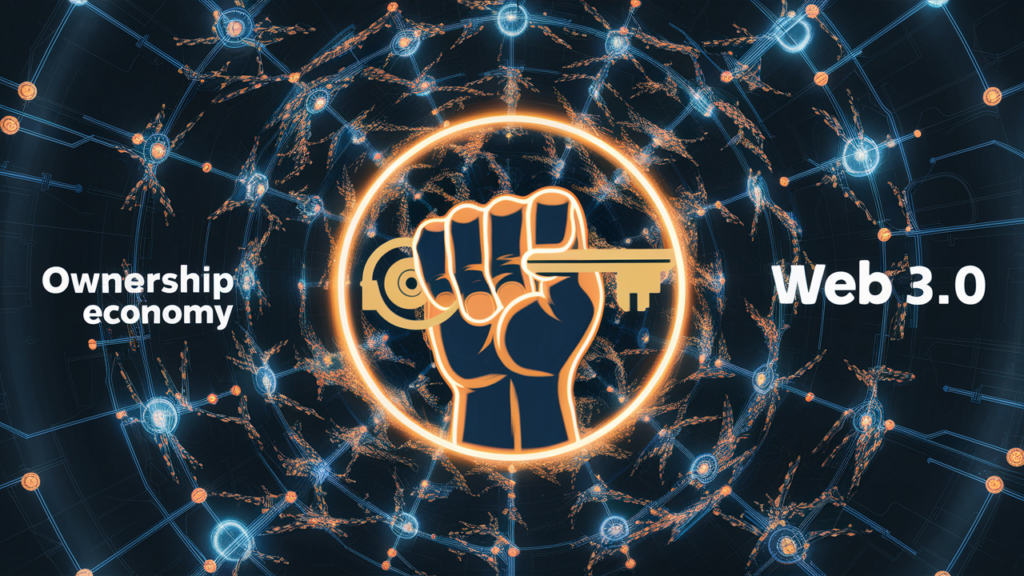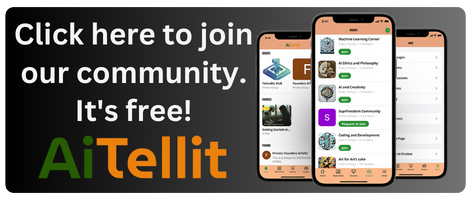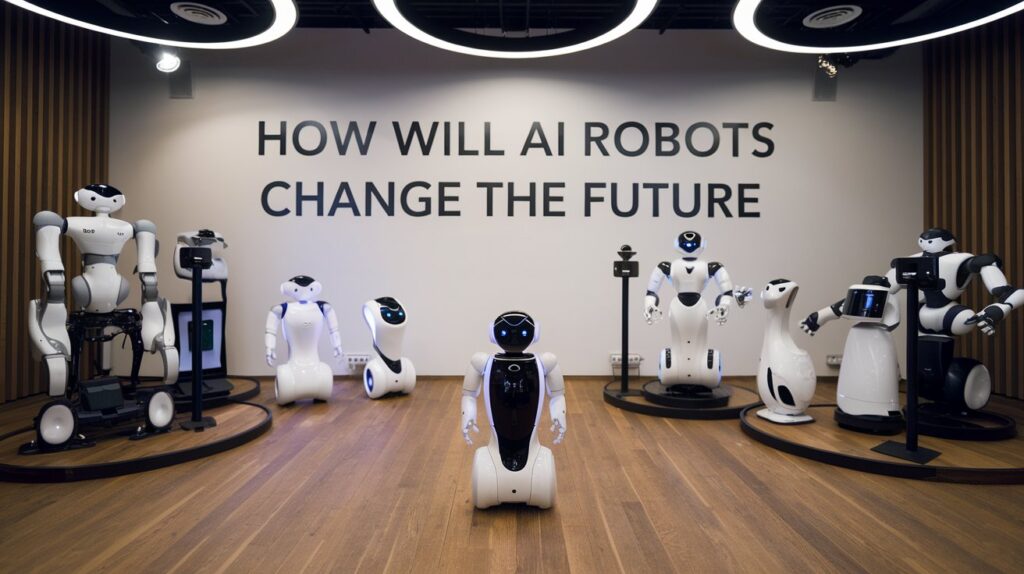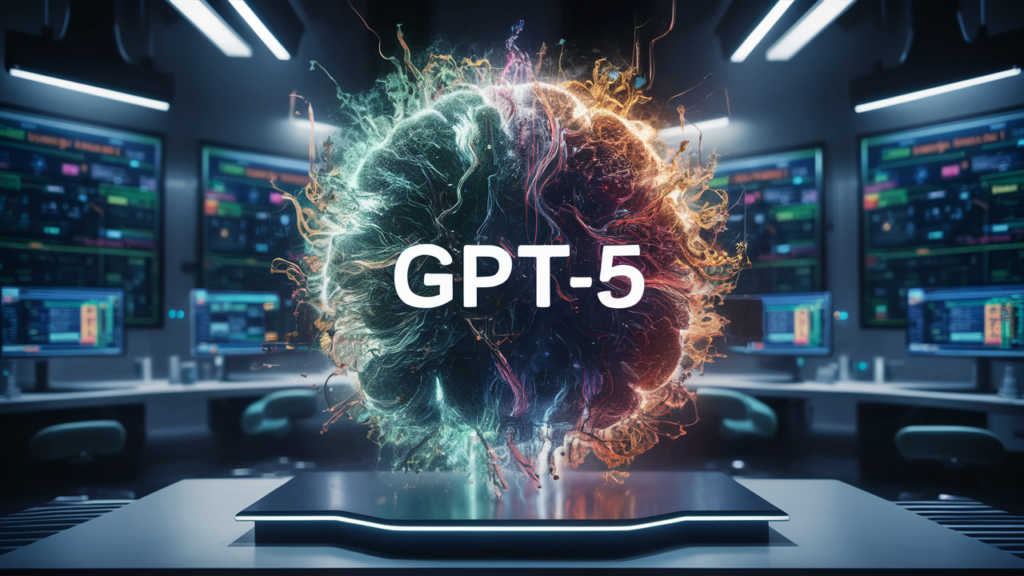Web 3.0 and Ownership Economy

In the rapidly evolving digital landscape, Web 3.0 and the Ownership Economy are poised to revolutionize how we interact with and control our data. As we stand on the precipice of this transformative shift, it is crucial to explore the implications of decentralized ownership, transparent data practices, and the potential for individuals to monetize their personal information. The future of user sovereignty beckons, promising enhanced security, data portability, and a myriad of groundbreaking applications. However, navigating the challenges and societal impact of this new paradigm will require careful consideration and community engagement.
Web 3.0 and Ownership Economy audio file
Key Takeaways
- Web 3.0 empowers users with decentralized control and ownership over their digital assets and personal data
- Blockchain technology enables secure, transparent, and immutable transactions in the ownership economy
- Data marketplaces allow individuals to monetize their personal information while maintaining control and privacy
- Decentralized applications and NFTs revolutionize digital asset ownership by verifying uniqueness and authenticity
- Web 3.0 fosters a more equitable online environment by reducing power concentration in centralized entities

Decentralized Control and Ownership
Empowering individuals with decentralized control and ownership over their personal data and digital assets, Web 3.0 ushers in a new era of user sovereignty and privacy protection. The ownership economy, a cornerstone of Web 3.0, enables users to determine access rights to their data, granting them unprecedented control over their digital footprint. This decentralized approach to data ownership ensures that no single entity can monopolize user information, fostering a more equitable and transparent online ecosystem.
In Web 3.0, users have the power to revoke data access at any time, significantly enhancing their privacy and control over personal information. The decentralized nature of Web 3.0 technologies, such as blockchain and peer-to-peer networks, guarantees that data remains securely in the hands of its rightful owners.
Transparent Data Practices

In the era of Web 3.0, transparent data practices take center stage, empowering users with unprecedented control over their personal information.
Blockchain technology serves as the backbone of this paradigm shift, providing an immutable audit trail that chronicles every data transaction within the ecosystem.
Platforms like Meeds DAO prioritize clear data usage policies, ensuring participants are well-informed about how their data is utilized and shared, fostering a culture of trust and accountability.
Data Usage Policies
Web 3.0’s commitment to transparent data practices ensures users maintain control over their personal information, fostering trust between individuals and data custodians in the decentralized digital landscape. In the emerging ownership economy, data usage policies play a crucial role in empowering users to make informed decisions about sharing their valuable information. By clearly stating how data will be utilized, shared, and stored, Web 3.0 platforms demonstrate their dedication to transparency and user autonomy.
Transparent data practices form the foundation of trust in the decentralized web, enabling users to understand the implications of their digital interactions. As the ownership economy evolves, individuals will increasingly demand control over their personal information, and Web 3.0’s emphasis on transparency will be essential in meeting these expectations.

Blockchain Audit Trail
The Meeds DAO ecosystem leverages the inherent transparency of blockchain technology, creating an immutable audit trail that ensures clarity and accountability in data handling practices. By recording every transaction and interaction within the ecosystem on the blockchain’s transparent ledger, Meeds DAO fosters trust among participants and showcases its commitment to responsible data usage.
The blockchain audit trail provides a clear and traceable record of how data is used, stored, and shared within the ecosystem. This transparency promotes data integrity and allows for easy verification of compliance with established data practices and policies. Every movement of data can be traced back, ensuring that accountability is maintained at all times.
In the era of Web 3.0 and the ownership economy, the Meeds DAO’s utilization of blockchain technology for transparent data practices sets a new standard for trust and accountability. By empowering participants with a clear understanding of how their data is handled and by providing an immutable audit trail, Meeds DAO demonstrates its dedication to building a decentralized future where data ownership and transparency are paramount.
Monetizing Personal Data

In the Web 3.0 era, data marketplaces emerge as decentralized platforms where individuals can monetize their personal data.
These marketplaces leverage blockchain technology to facilitate secure and transparent transactions, ensuring fair compensation for data providers.
Data Marketplaces
Data marketplaces, a cornerstone of the Web 3.0 ownership economy, empower individuals to monetize their personal data by selling it to interested parties on decentralized platforms. This paradigm shift provides users with the opportunity to earn compensation for sharing their data, recognizing the inherent value of their personal information. Through these data marketplaces, individuals gain unprecedented control over their data, determining who can access it and under what conditions. This enhanced data sovereignty is a significant step forward in the evolution of the internet.
Moreover, Web 3.0 data marketplaces promote transparency by recording data transactions on the blockchain, ensuring auditability and fostering trust between buyers and sellers. By enabling individuals to monetize their personal data, these decentralized platforms contribute to financial empowerment, allowing users to benefit directly from their data contributions.
As the ownership economy continues to grow, data marketplaces will play an increasingly crucial role in shaping the future of data exchange, putting power back into the hands of individuals and redefining the way we perceive and value personal information in the digital age.
Compensation Mechanisms
Empowering individuals to monetize their personal data, Web 3.0 compensation mechanisms revolutionize the ownership economy by ensuring fair financial rewards for users who contribute their valuable digital assets.
In this decentralized era, data exchanges and marketplaces emerge as the backbone of the new digital economy, enabling individuals to take control of their data and benefit financially from its value. Direct financial benefits serve as a driving force, motivating users to actively participate in the data economy while maintaining ownership of their digital assets.
Fair compensation mechanisms, built on the principles of transparency and equity, ensure that users receive just rewards for their data contributions. This paradigm shift in the ownership economy, fueled by Web 3.0 technologies, paves the way for a future where individuals are recognized as the rightful owners of their data and can monetize their personal information on their own terms.
As the value of data becomes increasingly apparent, Web 3.0 compensation mechanisms empower individuals to harness the potential of their digital assets, ushering in a new era of financial autonomy and prosperity in the ever-evolving digital landscape.
Enhanced Security Measures

Web 3.0’s blockchain-based architecture fortifies the security landscape, leveraging cryptographic techniques to safeguard data from unauthorized access and tampering. By employing decentralized security measures, Web 3.0 ensures the integrity of data within its ecosystem. The transparent record-keeping inherent to blockchain technology fosters trust among participants by providing an immutable audit trail of transactions.
In contrast to traditional centralized systems, Web 3.0’s decentralized nature significantly reduces the risk of single points of failure, making it more resilient against attacks. The cryptographic methods embedded in the blockchain guarantee that data remains tamper-proof and secure throughout its transfer and storage within the Web 3.0 ecosystem.
Moreover, the enhanced security features of Web 3.0 prioritize user privacy, giving individuals greater control over their personal information. By minimizing the potential for data breaches and unauthorized access, Web 3.0 creates a more secure environment for users to interact and transact online.
As the internet evolves, the robust security measures of Web 3.0 will play a crucial role in protecting user data and fostering trust in the digital realm.
Data Portability Empowerment
In the era of Web 3.0, data portability emerges as a cornerstone of user empowerment within the ownership economy. Secure data transfer mechanisms enable seamless migration of personal information across platforms, granting users unprecedented control over their digital assets.
The Meeds DAO ecosystem exemplifies this paradigm shift, allowing users to define access conditions and sharing permissions, thereby asserting their autonomy in the decentralized landscape.
User Control
Data portability, a cornerstone of user control within the Web 3.0 paradigm, enables individuals to seamlessly transfer their personal information across platforms while maintaining ownership and autonomy. This empowerment is exemplified within the Meeds DAO ecosystem, where users have the ability to dictate the terms of data access and sharing, ensuring their privacy is respected and their personal data remains under their control.
Secure data migration is a fundamental aspect of Web 3.0, allowing users to freely move their information without sacrificing security or relinquishing ownership. By placing data ownership squarely in the hands of individuals, Web 3.0 promotes a level of user control that was previously unattainable. This newfound autonomy not only enhances privacy but also fosters a sense of empowerment, as users are no longer beholden to centralized entities that may exploit their personal data for profit.
Through the implementation of robust data portability mechanisms and the prioritization of user control, Web 3.0 is ushering in a new era of digital sovereignty, where individuals are the true masters of their personal information.
Secure Data Transfer
Empowering individuals through secure data transfer, the Meeds DAO ecosystem leverages the decentralized architecture of Web 3.0 to ensure users maintain complete control over their personal information during seamless platform migration.
The ownership economy, fueled by data portability, revolutionizes how individuals interact with their digital assets. Within the Meeds DAO ecosystem, secure data transfer protocols guarantee that users retain ownership of their data, even as they migrate across various platforms.
This empowerment enables individuals to dictate the terms of data access, granting them the authority to determine who can utilize their information and under what conditions. By prioritizing user control and autonomy, the Meeds DAO ecosystem establishes a new paradigm where data is not merely a commodity but an extension of one’s digital identity.
Through the power of Web 3.0 and the ownership economy, individuals are no longer passive participants but active stewards of their personal data, ushering in an era of enhanced privacy, security, and self-determination within the digital landscape.
Web3 Ecosystem Advantages
The Web3 ecosystem harnesses blockchain technology to facilitate decentralized ownership, aligning incentives and empowering users through innovative compensation models and collaborative communities. By leveraging smart contracts, Web3 enables users to be compensated for their time, data, and input in the form of tokens or coins. This ownership economy fosters a sense of belonging and encourages active participation, as users become brand advocates and partners in the ecosystem’s growth.
The advantages of the Web3 ecosystem include:
- Decentralized ownership facilitated by blockchain technology
- Aligned incentives that encourage active participation and advocacy
- Smart contracts that enable user compensation for services rendered
- Collaborative communities that enhance loyalty and engagement
- Tokens earned for contributing time, data, and input to the ecosystem
As Web3 continues to evolve, it is poised to revolutionize the way we interact with digital platforms, creating a more equitable and user-centric environment. By embracing decentralized ownership and aligning incentives, Web3 empowers users to take control of their digital experiences and reap the rewards of their contributions, ultimately fostering a more collaborative and engaged ecosystem.
Transformative Applications
Web3’s transformative applications harness the power of decentralized ownership and aligned incentives to revolutionize industries and create new opportunities for users.
Decentralized applications (dApps) built on blockchain technology eliminate intermediaries, empowering users with direct ownership and control over their digital assets. This paradigm shift enables creators and artists to monetize their work directly, without relying on centralized platforms that take a significant cut of their earnings.
NFTs, which use blockchain to verify uniqueness and authenticity, have emerged as a game-changer in the realm of digital asset ownership. By allowing creators to mint and sell one-of-a-kind digital items, NFTs open up new revenue streams and provide collectors with verifiable ownership of scarce digital assets. The transparency and immutability of blockchain technology ensure that transactions involving NFTs are secure and trustworthy.
As Web3 continues to evolve, we can expect to see more innovative applications that leverage decentralized ownership and aligned incentives to disrupt traditional industries. From finance to gaming, these transformative applications will empower users, foster transparency, and create a more equitable digital landscape where value accrues to the creators and owners of digital assets.
Navigating Challenges

As the decentralized web continues to evolve, navigating the challenges of scalability, security, and regulatory uncertainty is crucial for realizing the full potential of Web3 technologies.
Scalability issues remain a significant hurdle, as the high volume of transactions on blockchain networks can lead to congestion and slow processing times. This, in turn, hinders the widespread adoption of Web3 applications and the growth of the ownership economy.
Security risks, such as hacking and data breaches, are another major concern in the decentralized environment. To mitigate these risks, developers must:
- Conduct thorough smart contract audits
- Adhere to best practices in secure coding
- Implement robust authentication and authorization mechanisms
- Regularly update and patch vulnerabilities
- Educate users on best practices for safeguarding their digital assets
Regulatory uncertainty surrounding cryptocurrencies and blockchain technology also poses challenges for the widespread adoption of Web3. Clarity in legal frameworks and compliance requirements will be essential for fostering innovation and growth in this space.
Additionally, user experience improvements, such as intuitive interfaces and seamless onboarding processes, will be key to enhancing the usability and accessibility of Web3 applications, driving mainstream adoption of the decentralized web.
Societal Impact
Overcoming these challenges paves the way for Web 3.0 to profoundly impact society, ushering in an era of enhanced transparency, security, and economic inclusion. By prioritizing user ownership and control over digital assets, Web 3.0 addresses long-standing concerns about data privacy and digital rights. This paradigm shift reshapes online interactions, fostering a fairer and more user-driven internet experience.
The societal impact of Web 3.0 extends beyond individual empowerment; it promotes a more equitable society by democratizing access to information and resources. The ownership economy, a cornerstone of Web 3.0, enables users to participate directly in value creation and distribution, reducing the concentration of power in the hands of a few centralized entities.
As Web 3.0 continues to evolve, it has the potential to create a just online environment where users have greater control over their digital footprint and can engage in secure, transparent interactions. By championing user empowerment and decentralization, Web 3.0 lays the foundation for a more inclusive and equitable digital future, where the benefits of technology are distributed more fairly across society.
Community Engagement Guidelines
Engaging with the Web 3.0 community requires adherence to guidelines that foster open, respectful discussions and protect the integrity of the decentralized ecosystem. As the ownership economy takes shape, community engagement guidelines become crucial for maintaining a positive atmosphere where valuable insights can be shared freely.
Power users play a vital role in encouraging insightful comments and reporting rule violations to safeguard the community from malicious actors.
Some key aspects of effective community guidelines include:
- Promoting civil discourse and respectful interactions
- Encouraging thoughtful, on-topic discussions related to Web 3.0 and the ownership economy
- Swiftly addressing and removing content that violates community rules
- Empowering users to flag inappropriate behavior and content
- Fostering a culture of mutual respect, collaboration, and knowledge-sharing

Frequently Asked Questions
How Will Web 3.0 Affect the Economy?
Web 3.0 will revolutionize the economy through decentralized finance, tokenization of assets, and NFT marketplaces. Decentralized autonomous organizations, digital identity, and smart contracts built on blockchain technology will create a more equitable, transparent, and user-centric economic infrastructure.
What Is Ownership in Web3?
In Web3, ownership revolves around users having full control over their digital assets, such as NFTs and tokens, through decentralized blockchain technology. Smart contracts enable secure, transparent transactions, empowering individuals with data privacy, economic opportunities, and innovation.
What Is the Impact of Web3 on the Creator Economy?
Web3 empowers creators through decentralized platforms and digital ownership. NFT opportunities and tokenized assets enable peer-to-peer transactions, crypto royalties, and collaborative partnerships. The creator economy thrives with newfound control, monetization potential, and global reach.
What Is the Size of Web3 Economy?
The Web3 economy, driven by decentralized finance, NFT markets, and tokenization, has a market potential exceeding $400 billion. With significant investment opportunities and growth projections, Web3’s impact on data ownership and governance models is transformative.
Conclusion
Web 3.0 and the Ownership Economy mark a pivotal shift in the digital realm, redefining user autonomy and data sovereignty.
As decentralized architectures, transparent practices, and user-centric monetization models gain traction, individuals are poised to reclaim control over their digital footprint.
Embracing the transformative potential of this paradigm will require navigating challenges, fostering innovation, and engaging communities to shape a more equitable and empowering digital future for all stakeholders in the evolving Web 3.0 landscape.






Responses